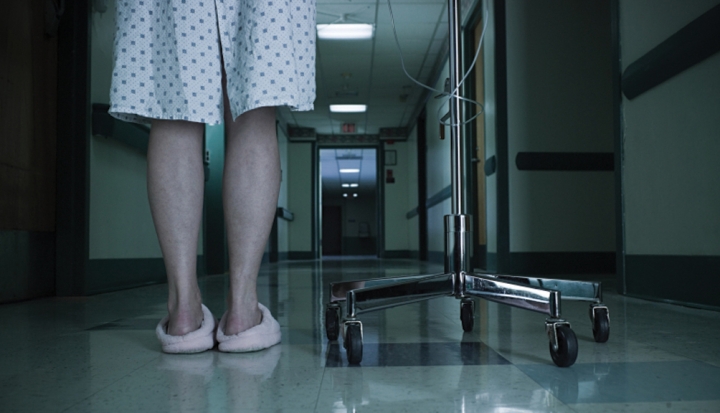The young woman shared her difficult history, her crippling grief. Then she asked, “So what’s a chaplain again?”
Hospitals, especially hospital emergency rooms, are one of those few places in our increasingly divided society where haves and have-nots still end up together when they encounter the business end of life. Even the most expensive SUV is no defense against a drunk driver—especially when the driver is piloting the SUV—and ice and steep stairs, not to mention heart attacks and strokes, defer to no human privilege. That’s not to say the experience of being in the hospital is the same for everyone. As my father once said after a visiting a friend nearly felled by appendicitis, a trip to the hospital is a reminder of what life is really like for a lot of people, most of whom don’t share my father’s and my middle class world of protection and care.
My own experience as a volunteer hospital chaplain has confirmed my dad’s insight: It’s rare that I don’t notice the safety cushion that being financially secure and covered by a thick blanket of health insurance has afforded me—protections many of the people I visit do not have.
In a city like Chicago, the difference is obvious in some of the diagnoses that patients bear, from long-untreated diabetes to cancer so advanced that physicians can offer only pain control—living arguments for health care reform no matter what your politics are. Some injuries signal the sickness of the city: A patient with a gunshot wound most likely comes from Chicago’s most economically depressed, intractably violent, and civically abandoned neighborhoods, and has usually been there all of his or her life.
But the differences are more than just the physical ailments and traumatic wounds. Many patients, rich and poor alike, are also without the friendship and human care that make the hospital bearable.
I remember one young father—who began our encounter by lifting his shirt to show me a 12-inch line of staples sealing his abdomen after a gunshot wound—noting that he wasn’t accustomed to people being “this nice” to him. My great act of kindness had been simply to ask him how he was feeling, and listening as we made laps around the unit, him pulling his IV pole of pain meds behind him as he tried to rebuild his strength. The concern of others, which I’ve taken for granted for my entire life, is something he had only rarely experienced.
Although that patient’s physical wound has been uncommon, his emotional ones seem to be par for the course. It is rare during a shift that I don’t discover another person who seems never to have been asked how they’re feeling, or what their day has been like, or if they’d like someone to pray with them.
I have been surprised by people’s eagerness to share their stories. I suppose the title “chaplain” helps, but I’m not so sure it’s necessary. One young woman, after sharing a difficult history not only of addiction but of the crippling grief that fueled it, finished our conversation by asking, “So what’s a chaplain again?” It’s not an unusual question.
I continue to be astounded by the sheer resilience of people who have suffered crushing blows that would render me catatonic. More than once a patient has prayed more beautifully for me than I have for them; for some, illness has only made faith stronger, gratitude deeper. And then there is the devotion of parents to their children, which seems to become fiercer when illness threatens, whether it is the parent who is sick or the child.
Pope Francis has described the parish as a field hospital, where the walking wounded come to find comfort, healing, and strength—an image I carry as I go from room to room. I know my own church has been that for me; when I was last hospitalized, I was twice anointed and brought communion.
But having discovered in the hospital a crisis in the care of the human spirit, I find myself hoping also for parishes that are schools of nursing, where Jesus’ followers are equipped to share his healing work by visiting the sick and comforting the dying, as the traditional works of mercy counsel us to do. We may be surprised by the healing power of just showing up in a hospital room.
This article appeared in the February 2014 issue of U.S. Catholic (Vol. 79, No. 2, page 8).
Image: ©iStock/IS_ImageSource















Add comment